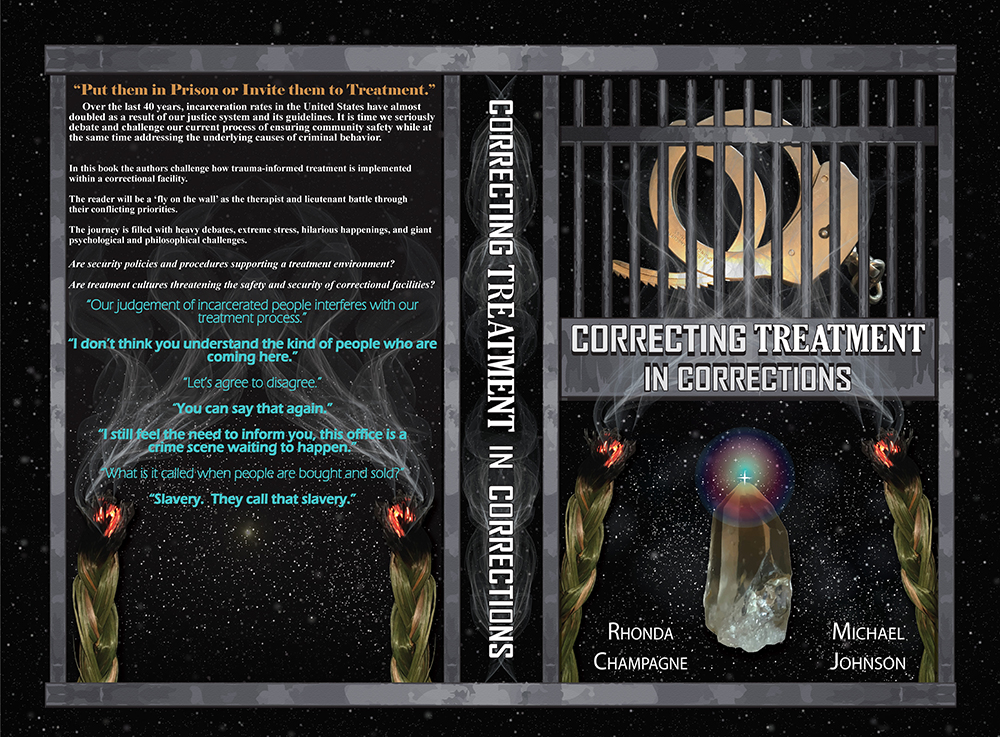Book Reviews
“The United States is the world’s leader in incarceration with 2.2 million people currently in the nation’s prisons and jails, a 500 percent increase over the last forty years. Changes in sentencing law and policy, not changes in crime rates, explain most of this increase. These trends have resulted in prison overcrowding and fiscal burdens on states to accommodate a rapidly expanding penal system, despite increasing evidence that large scale incarceration is not an effective means of achieving public safety.”
Submit your review | |
After reading this book I now have a better understanding of my old coworker's views on how we treat (and how we should treat) the incarcerated.
And the book it is a fast, but great read, it also has a tonne of incite into the lack of facility specific training that is offered and how it causes (sometimes inhumane) treatment of those in the system.
This is an easy read. An engaging book sharing how a DOC Lieutenant and a therapist worked together and with other professionals to help incarcerated women heal from past traumas. The women were treated with dignity and respect and treated as women rather than inmates or numbers.
Be the Change You Wish to See in the World
Wow! What a tour de force!
I was asked by a mutual friend to read and review Correcting Treatment in Corrections. I was expecting a dry clinical book about the well-known struggles social services and corrections have when trying to find common ground. The book was nothing like that. Correcting Treatment in Corrections outlined those struggles in an anything-but-dry fashion. Laced with warmth and self-effacing humor, the book told a story about a ground-breaking experiment with the potential to shake traditional conservative corrections to its knees. The book blasts its way through old corrections tightly-clung-to practices like strip searches and shows a different way to deal with those who have offended. The ways shown in the book are radical ideas such as: Treating folks like they are successful creates successful behavior, viewing those seeking treatment as being responsible and showing empathy for trauma. This book is a long-needed dialogue between the world of social services and the world of corrections.
60 Minutes did a show five years ago on the prison system in Germany. The focus is on rehabilitation—not retribution. The prison’s goal is reintegration into society. Rehabilitation costs less and has a much lesser rate of recidivism. This way of thinking was clearly shown by the forward-thinking staff of Riverside. This is the wave of the future. What America is currently doing is not working. America makes up five percent of the world’s population and yet incarcerates twenty-five percent of the world’s prisoners. It is criminal that the for-profit correctional system was allowed to close what was working in favor of what was making money. You cannot make money on living beings.
I’m very impressed with Michael Johnson for leaving his comfort zone of control and giving concepts of treatment a chance. Without his complete brave buy in, the great experiment never would have flown. Kudos to the creative correctional staff for carrying out many miracles daily.
I had the great fortune and privilege of working with Rhonda Champagne at the mental health clinic. She shaped much of my views of addiction, mental illness and recovery. While reading the book, I can clearly picture the omnipresent smile in Rhonda’s eyes as she tore down the comfortable sacred walls between corrections and treatment. Rhonda always pushed us to get out of our comfort zones, climb out of our boxes and try new ways of seeing life. I laughed and cried my way through many scenes in the book as they stirred wonderful memories I had of working with her. She is a force of nature and one of my most treasured teachers.
Rhonda—the card you gave me many years ago has hung on the bulletin board of every office I’ve been in since you sent it to me and I try to be guided by its message.
--Danielle Godlevsky
Excellent investigative reporting woven into a trauma informed care narrative that brings the pertinent issue of treatment versus simple incarceration. These success stories show exactly how to reduce recidivism. Montana’s political leadership should be ashamed of their treatment of their own friends, family and neighbors. Kudos to this fearless duo for uncovering the truth about the facility’s closure, but more importantly providing trauma informed care to clients and staff to perpetuate a cycle of healing versus crime.
I found this book to be very educational as I knew nothing about the subject before reading the book. I am now passing it onto my husband to read. Everyone should read this book!
Advocate For Legislative Action
Enter your email below and join us in advocating for a change in treatment offered within the correctional system.
- Stop using treatment centers as forms of punishment.
- To cease all 20-year contracts between the Department of Corrections (DOC) and private organizations.
- To mandate trauma informed treatment in Montana’s DOC owned and/or privately contracted treatment facilities using the evidence-based guidelines provided by Substance Abuse Mental Health Services Administration (SAMHSA).
- Mandating 'independent standardized measuring tool' to assess recidivism rates.
- To mandate the use of SAMHSA’s six key principle guidelines to measure the effectiveness of Montana’s DOC owned and/or contracted treatment centers with private organizations.
- To mandate the development of specialized Correctional Counselor, trauma informed trainings. Training which will teach Correctional Counselors to uphold a safe and secure environment through a relationship-based rapport with incarcerated people in Montana’s DOC owned and/or privately contracted treatment facilities.

